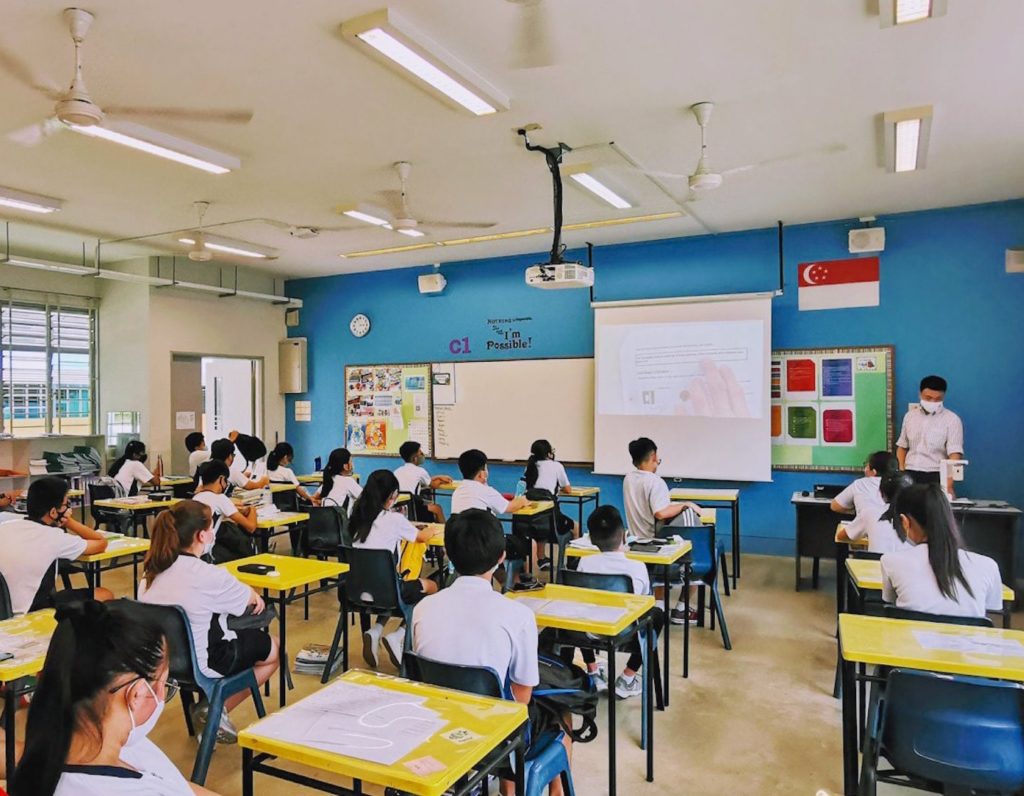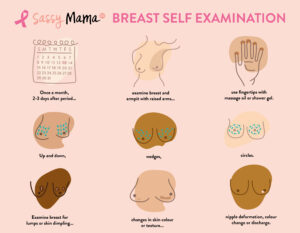
If your child is having a hard time with standard Chinese at local primary school, did you know you can request foundation Chinese or even foundation Malay or Tamil instead?
Ever since the Ministry of Education announced the new Subject-based Banding (SBB) framework in 2018, local schools have moved towards the direction of students across different streams learning subjects at levels suited to their individual abilities. In local primary schools in particular, ‘foundation subjects’ are offered to Primary 5 and 6 students in order for them to ‘build up their understanding in subjects they need more help with’, according to MOE.
Foundation Mother Tongue (MT) subjects can also be an option for students who struggle with its standard counterparts – but there are criteria to abide by, such as the fact that the student must have had passed only 2 subjects or less. Plus, not all schools will provide the additional resources required for Foundation MT. If you feel that Foundation Chinese, Malay or Tamil is best for your child, you can advocate for your child to move to this level with the school leadership. Keep reading as one mama whose child goes to local primary school lists out the pros and cons of the different options.
1. The PSLE Exam Scoring comparison
As stated on the MOE’s guide to the new Primary School Leaving Examinations (PSLE) scoring system, your child’s PSLE score will be the sum of the four subject scores. It ranges from 4 to 32, with 4 being the best possible total score.
Taking Standard MT, the scores are graded 1-8 with 1 being best. In Foundation MT, the scores are 6-8 (with 6 as the top score even if you marked 100%) so you would have to accept that the best your child could achieve with Foundation MT is a score of 6.
2. Foundation MT vs. Standard MT (Conversational vs. Reading/Composition)
Foundation MT focuses on listening and speaking while Standard MT focuses on reading and writing. In Standard Chinese PSLE, for example, you will need to compose a 100-word essay in Chinese among other tasks. In Foundation MT, the largest score component is on oral conversation skills.
Foundation MT has this scoring method:
Foundation Mother Tongue Paper 1
Reading 15%
Language application – multiple choice – 5 questions
Reading understanding – multiple choice/ open – 5 questions
Paper 2
Oral 55%
Reading aloud – 15 points
Conversation – 40 points
Paper 3
Listening 30%
Listening comprehension – 15 questions
In comparison, Standard MT has this scoring method:
Paper 1
Writing – 20%
Proposition composition and picture composition with a minimum of 100 words
Paper 2
Language application and Reading Comprehension – 45%
Paper 3 –
Oral Test and Listening – 25%

3. Mother Tongue In Lieu (MTIL)
If a child takes MTIL such as French, their PSLE score will be a 6-8. They take an average score of children in Foundation languages as a proxy. You can do no better on PSLE as a MTIL student than a Foundation language student. (source)
4. Language Exemption
If a child is exempted from MT, their PSLE score will be a 6-8. They take an average score of children in Foundation languages as a proxy, just like for MTIL students. To qualify for a full language exemption, the common wisdom is a student needs to be failing their language, or have a longstanding learning disability, plus support of the school principal, and experiencing emotional distress because of the language.
5. Secondary School Implications
Students who take Foundation MT will need to take up Mother Tongue Level B (for Normal Academic and Express stream students) in secondary school. This is not offered at all local schools and may limit your child’s choices of secondary schools they consider.Check out the list of schools that offer MTLB here. Schools that do not offer MTLB will allow students to travel to a language center (usually another school) to take their language.
For technical track students in secondary, they will be offered Basic MT.
For students who take MTIL, they will need to sit for an ‘O’ Level exam at the end of secondary school in that language which can be rigorous and comprehensive. Here is an example of the exam requirements for French ‘O’ Levels.
6. Time, Tears and Money
Teaching a child to read and write in Standard MT is very time consuming, especially if you don’t naturally speak it at home. Students will attend Standard MT five times a week and most require additional tutoring.
Foundation MT is given 1-2 days a week and focuses on listening and speaking in the MT language.
If your child is struggling to keep up with Standard MT, you may be wondering if the time and money spent on MT tutors might be better deployed to other subjects, hobbies, or simply, rest. Ask yourself, “Would my child do better in math if they could spend their one hour of MT tuition studying that?” Emotionally, a child may be better off dropping down to Foundation if it is creating an emotional burden on themself.
7. Implications for Tertiary Education
Singapore requires a secondary language to be admitted into their junior college and the public university system. The requirements for National University of Singapore, for example, require Mother Tongue, MTLB or MTIL. If a student was exempted completely, they will only be admitted on a provisional basis.
In Junior Colleges, most require MT or MTLB or the O level of MTIL to secure admission.
For students who exempt the language, university admission via private or overseas universities without a language coursework can limit their marketability and chances of admission. Students will be competing in an open market with other students and having less to offer is never good.
But every university has its own admission requirements and coursework requirements for graduation. For example, many American universities require two years of additional coursework in a foreign language to obtain a Bachelor of Arts. Without a foundation from secondary school, a student may find the foreign language coursework difficult to complete. Starting from scratch can be really challenging in a language as an adult learner. Alternatively, many technical program students can take additional math and science courses and graduate with a Bachelor of Science and waive the language requirement. Check with your child’s intended university for exact requirements on foreign languages.
Some parents with special needs children decide to take on American Sign Language (ASL for the hearing impaired) as their ‘foreign language’. So this is perhaps something to consider supporting if your child is exempted from a traditional foreign language. Whatever you choose for your child, do the appropriate research on accredited programs and check with your child’s tertiary education choices on whether this is recommended.
Many thanks to the mother (who prefers to remain anonymous) whose child goes to local school and who helped us compile this article.






 View All
View All




 View All
View All











 View All
View All







